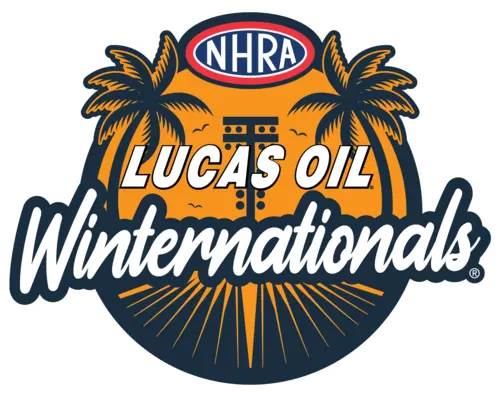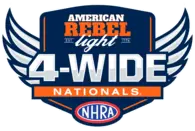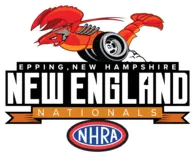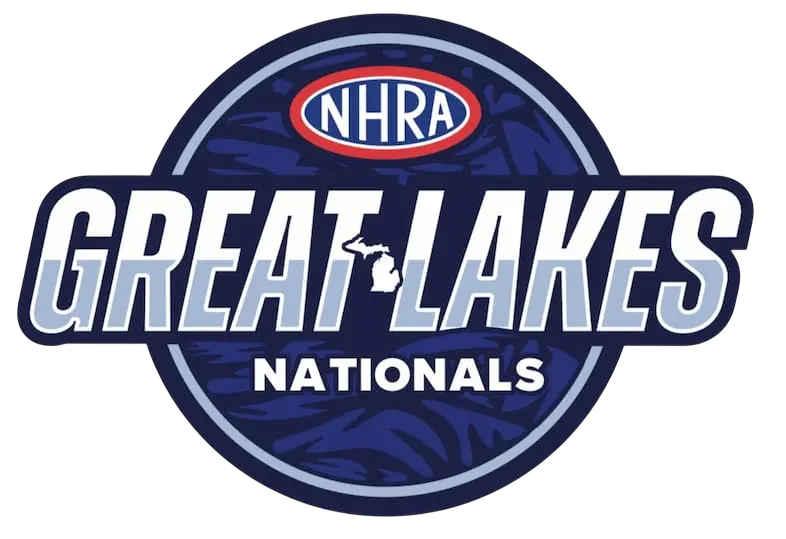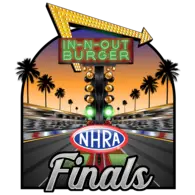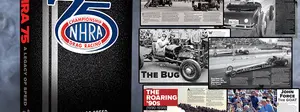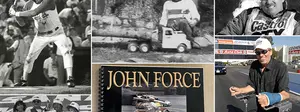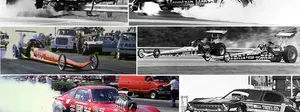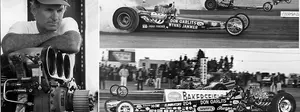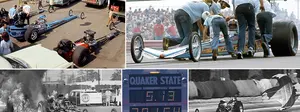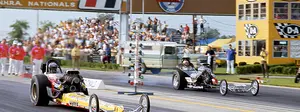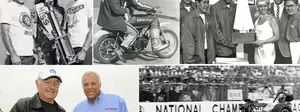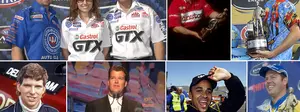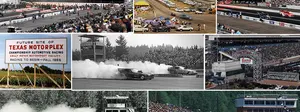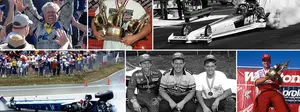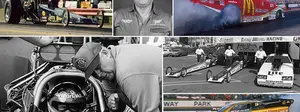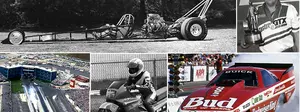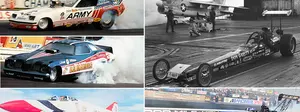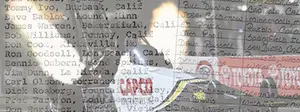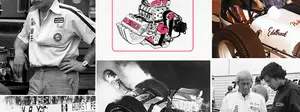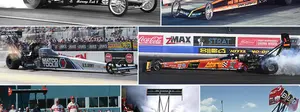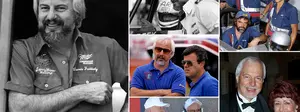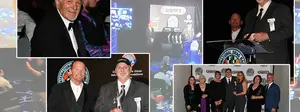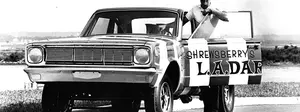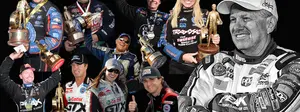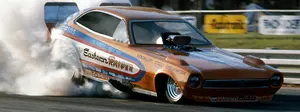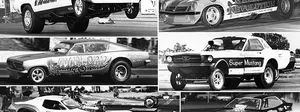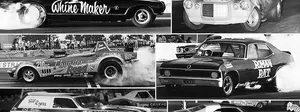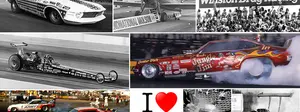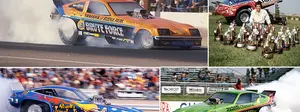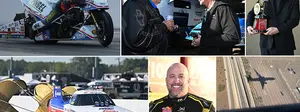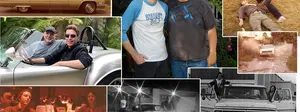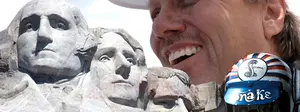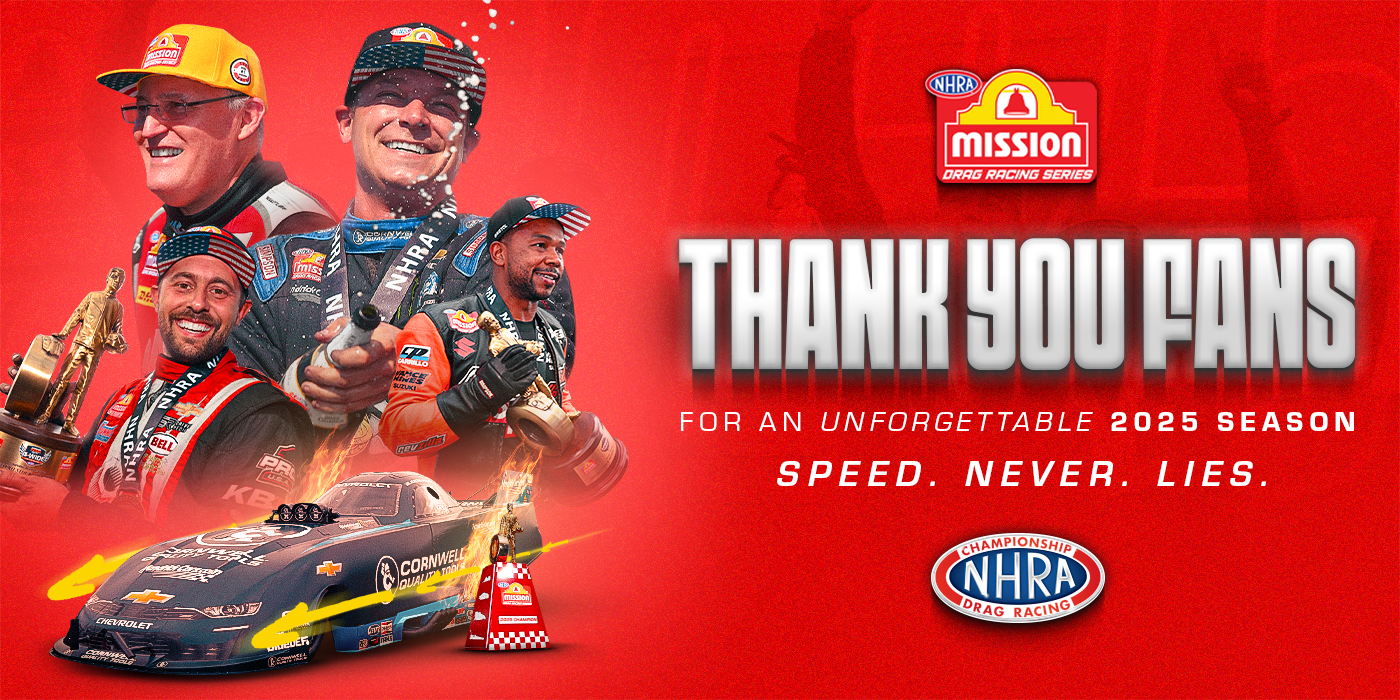

The Clapshaw Effect: How Don Garlits finally made his first 300-mph pass
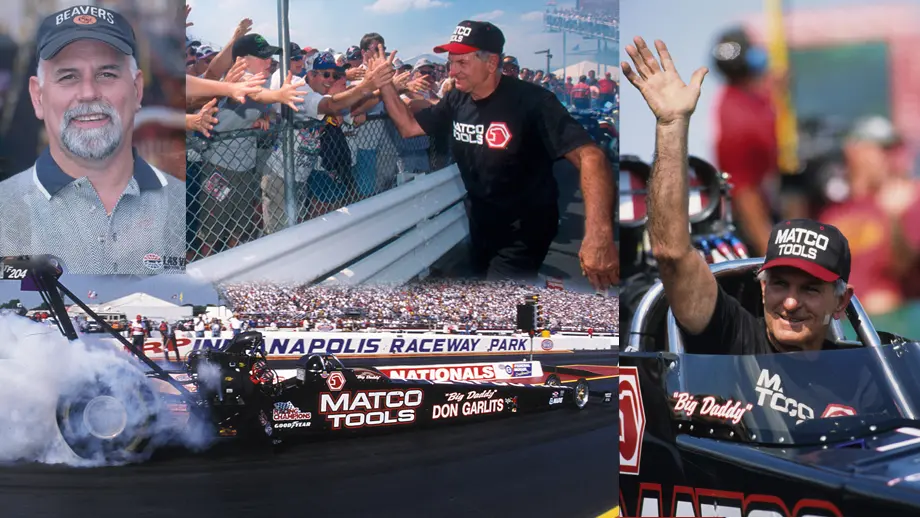
Don Garlits made a lot of meaningful passes in his long career in Top Fuel –- comebacks after accidents, comebacks after retirements, first runs in innovative new cars, U.S. Nationals final rounds –- but there’s no doubt that the pass he made on Sunday, Sept. 2, 2001, fits nicely into his top 10.
It was on that day, in the fourth qualifying session of the U.S. Nationals, that Garlits made his first 300-mph pass, and a story worth retelling now because it involved fellow racer Gary Clapshaw, who passed away last Sunday.
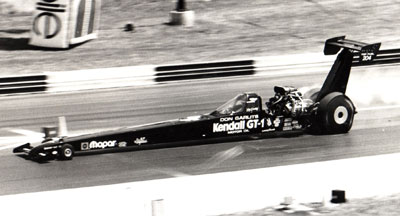
Other than his midnight run at the Autofest 2000 on New Years Eve 1999, Garlits hadn’t really competed in Top Fuel since 1992, when, after a five-year absence following his blowover wreck on Spokane, Wash., he debuted his monowing-equipped Swamp Rat 32, hoping to make the sport’s first 300-mph pass, but it wasn’t ready until just after Kenny Bernstein broke the barrier that year in Gainesville and Garlits’ time in the car ended quickly after he suffered a detached retina under heavy deceleration.
Garlits “retired” (again) with best performances of 5.07 and 287 mph, far short of what his contemporaries were doing, and it ate at Top Fuel’s most famous and iconic driver.
“I used to have people come through my museum and ask me, ‘ “Big Daddy,” what’s your best time?’ And I had to tell them that I’ve only been 5.07 at 287,” said Garlits in a 2001 interview. “At one time, 287 was good, but that’s not a great speed anymore. I would like to say that I’ve been over 300. I always thought it would be great to say that.”
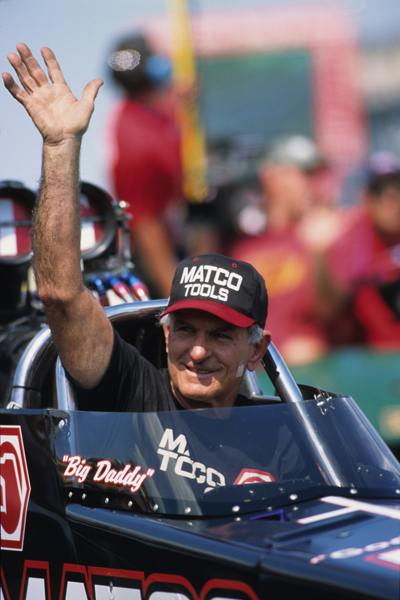
In 2001, during NHRA’s 50th anniversary season, Garlits was eager and ready to change all of that. After initial discussions with Don Schumacher about renting one of his dragsters for a return to competition at Indy for a shot at his first four-second and 300-mph time slips fell through due to lack of financing, Garlits and his team began work on resurrecting Swamp Rat 34, which had been driven with only a modicum of success, by Bruce Larson in 1993-94. The problem is that since the car had last run, NHRA has made a lot of rules changes, primarily concerning the chassis, and when NHRA tech officials presented the long list to “Big Daddy” a week before the event, it quickly became apparent to him that SR34 was way out of compliance. Chief among the concerns were extra bars in the roll cage and foot-box areas.
“I had assembled a crew and a transporter then right at the last minute NHRA faxed me 16 pages of new rule changes,” said Garlits. “NHRA has been changing the rules this year between rounds because these cars are so fast and they want to keep them safe. All of the upgrades could be done to my car, but not in five days. So at 11 o'clock on Wednesday (Aug. 22) morning, I pulled the plug. I said, 'It's over, we're not going boys.' I mean we had worked 24-7."
Garlits was disappointed but pragmatic.
“It was a perfectly safe car at one time, and now it’s not safe anymore,” he said. “I actually saw the Challenger [space shuttle] blow up. I know that was because they were rushing and wanted to launch that morning, and they said, ‘Rules be damned,’ so they launched, and look at the disaster. This dragster is kind of like that. This is a very, very dangerous toy, and I don’t want to do anything really fast or slipshod on it. I want to fix it and make it right.”
As word of Garlits’ concession made the rounds of the drag racing grapevine, Clapshaw, who had moved to the Top Fuel class the year before and had, in fact, come one round from a stunning victory at the U.S. Nationals in 2000, wasn’t about to let that happen. He picked up the phone and dialed Ocala, Fla.
“I was really depressed,” recalled Garlits. “I went into my office and shut my door. I started paying some bills and taking care of the everyday nuts and bolts of the business. The phone rang and it was Gary and I tell you what, I came back to life.

“I [didn’t] know Gary all that well,” Garlits continued. “I had seen him race and I knew of him. We weren't personal friends. He said his car was entered in the race and that I was welcome to drive it. He said 'I know how bad you want to do this.' “
“We had been following the story and saw where that might be headed,” said Clapshaw at the time. “We got together — me, my tuner, Lonnie Strode, and the guys on the crew — and thought about it: What’s big and what’s bigger? We think ‘Big’ is bigger. It’s not an easy thing to give up the seat at Indy, but when you look at the big picture, I think it’s a pretty nice thing for the fans, the association, and the racers. I think people will be happy to see Don back and for him to get to the fours at 300 mph. If it goes from A to B and doesn’t spit the belt, he’s going to get a pretty respectable time.”
I tracked down Strode, who had built Clapshaw’s nostalgia dragster in the 1980s and worked with him ever since, most notably as the crew chief during his Funny Car years. He has fond memories of that magic weekend.
“We had runner-upped there at Indy before so we were certainly looking forward to going back and trying to do well again,” he remembered. “Gary heard about Garlits’ situation and came to me and the crew and we agreed it was the thing to do. It was exciting just to think about working with Garlits, but it really put us under the gun to help make it happen. It was like, ‘Oh my god, Gary -- what have you gotten me into?’ “
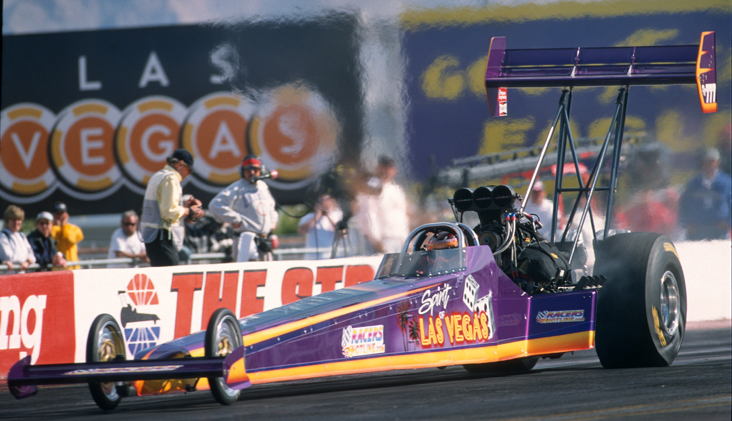
Clapshaw’s purple Spirit of Las Vegas dragster had previously gone as quick as 4.68 and had run well over 300 mph on numerous occasions, including a 312-mph best, so the car was definitely there, and within days Matco Tools stepped in and provided additional funding for the attempt.
Mike Korpi, who had been friends with Clapshaw since high school, was there when Clapshaw made the decision to call Garlits and also worked to help get the car wrapped from its purple scheme to Garlits black.

“Doug Davenport got the Matco deal for Indy,” Korpi recalled. “I contracted a guy in the Vegas complex to make the black Garlits vinyl cover to wrap the Spirit car. When we got to Indy, Don showed up at 7 a.m. and he climbed up into the semi expecting to see the Spirit car and he yelled down to his wife, Pat, and said ‘My God, Pat, it's a Garlits car.’ He was like a kid at Christmas."
Garlits’ first run on Friday night at Indy was a planned early shutoff. He drove it to about 200 feet, pedaled it once, then lifted at half-track, coasting to a 5.322 at 190.46 mph.
He lost his second attempt Saturday afternoon after a bolt came loose in the throttle linkage and was unable to get his dragster in reverse because the engine rpm was too high, setting the stage for a dramatic Saturday night pass under the light with longtime rival Shirley Muldowney in the other lane and retired NHRA Chief Starter Buster Couch doing the honors. It seemed like the perfect time against the perfect “opponent” for Garlits to complete his dream.
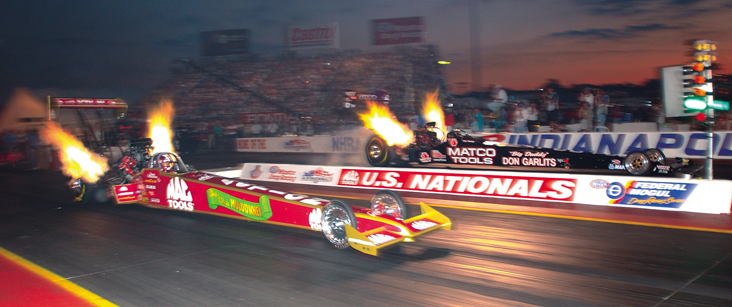
Unfortunately for “Big,” his black Matco mount spun the tires just off the starting line and coasted to a 12-second pass at just 85 mph. Muldowney drove a dagger into his heart with a flawless 4.67 at a career-best 320 mph. Garlits was 19th out of 21 cars and three spots shy of making the field heading into his final two qualifying passes Sunday.
"We had nothing but trouble," Strode recalled. "It took us a few runs before we figured out that Don -- who was smaller than Gary -- was sliding back in the seat and his foot was coming off of the throttle."
According to Korpi, the great safety-system manufacturer Bill Simpson -– who, ironically, died the day after Clapshaw –- played a huge part in fixing the problem, providing an inflatable seat cushion so that Garlits could get closer to the pedal, plus a new firesuit and chutes.
As fate would have it, Garlits was paired with another longtime friend and rival, Chris Karamesines, for Sunday’s first attempt and Garlits made the most of it, blasting to a 4.720 at 303.37 mph to not only accomplish both ends of the performance goals but also secured a tenuous spot in the field in the No. 15 spot with one session remaining.
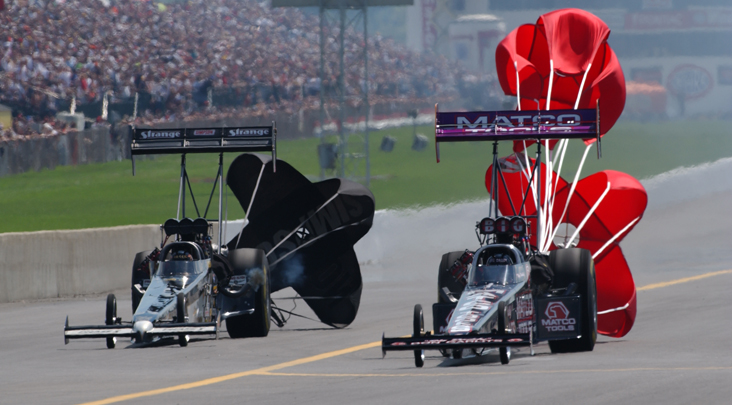
As Garlits towed triumphantly up the return road to the overwhelming roar of the crowd, another longtime pal, Connie Kalitta, and fellow Floridian Jerry Gywnn went over to congratulate him.
Five drivers had a shot at knocking him from the field in the final session but after Bobby Lagana dropped a couple of cylinders, Rhonda Hartman-Smith smoked the tires, Joe Hartley took a shot but dropped a cylinder and fell just short with a 4.771. With Karamesines bowing out of the session due to lack of parts, Garlits’ spot was in the field was assured when Luigi Novelli’s engine started eating itself up. With all chances of being bumped exhausted, Garlits and company pulled out of line and got ready for Monday’s first-round date with Mike Dunn. Incredibly, it was the first time that Garlits had qualified for a raceday field since the Brainerd event in 1987, more than 14 years earlier.
The relief was palpable, especially for Strode.
"The weight was off," he recalled. "I mean, 'no pressure,' right? We just had a really good crew, just a bunch of hometown boys, who had been together for a long time and worked really well together. That's a weekend I'll always cherish."
"All of us on the crew were in dreamland thinking, 'Is this really happening?'," recalled Korpi.
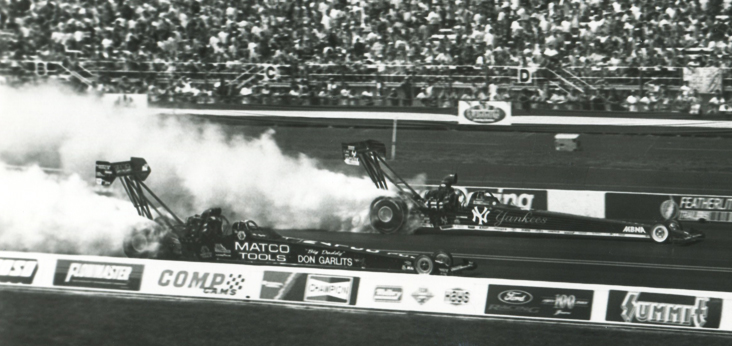
However, unlike 1984, when Garlits famously won the U.S. Nationals in his great comeback, he was ousted in round one this time, losing a 5.10 to 6.23 pedaling match to Dunn and the Gwynn family’s New York Yankees dragster, but he’d already accomplished his main goals.
Garlits returned to Indy in 2002 with retrofitted Swamp Rat 34 and ran a career-best of 318.54 mph and followed with a pass of 323.04 mph at his homestate Gatornationals in 2003. At the insistence of his late wife Pat, he retired from Top Fuel competition later following the Southern Nationals in Atlanta. Brandon Bernstein had the honor of facing -– and beating –- “Big Daddy” in his final Top Fuel pass. Garlits left first by more than a hundredth but fell at the other end, 4.61 to 4.73.
I caught up with “Big Daddy” earlier this week to ask him about that Indy weekend and what it means to him nearly 20 years later.
“What a wonderful weekend for me,” he said. “Running 300 at Indy is in my top five career highlights, for sure. What made it so great was that it was planned. A lot of those other great moments just happened, but to actually say ‘We’re going to Indy to run 300’ and we did. It was kind of like Babe Ruth pointing to the grandstands and then knocking the ball into them. That’s how it felt. I’ll never forget that run. That thing just set sail and I wasn’t going to turn it loose. It moved over towards the centerline a little bit but I pulled it back and went 303. It was great that ‘The Greek’ was in the other lane and he went 301; that made it even more special. Gary made some ‘Big is Back’ t-shirts for us that weekend and we just sold thousands of them. What a great weekend."
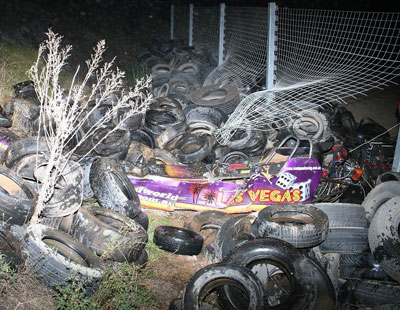
While the memories live on for Garlits, the car does not. It was sold to Steve Read and destroyed in a crash at Sydney Dragway in 2008 after the throttle stuck and the car went off the end of the track. As you can see in the photo at right, even though the Brad Hadman-built car it protected Read, who was not injured, the car was a write-off, much to Garlits' disappointment.
“I can’t say enough about how great Gary and his crew were," Garlits reflected. "Just a wonderful group of guys. It’s a shame that car ended up crashed in Australia. I’d love to have it in my museum. It was a special car to me.”
Phil Burgess can reached at pburgess@nhra.com
Hundreds of more articles like this can be found in the DRAGSTER INSIDER COLUMN ARCHIVE





